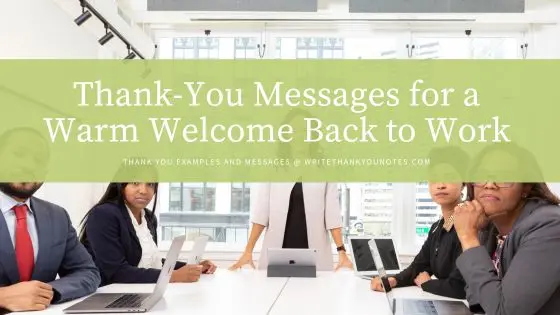The Power of Appreciation
The wheels of business revolve with such spin and speed these days that we roll right over the courtesies. Who has time for quaint customs?
More to the point, who can afford to let competitors rush onto the new and the next while we slow down for pleasantries?
You’re in for a surprise. The advice that follows, rest assured, is not some übermom lecture about society’s loss of grace (not that I couldn’t get into that). This is about leveraging an underutilized edge in the marketplace.
Today, extending old-time courtesies helps you stand out. Yes, saying “thank you” has become a competitive advantage. Sound similar? Our seemingly old-fashioned ways are not so outdated as so-called progressives like to insist.
- The Power of Appreciation
- The point: Don’t underestimate the power of saying thanks.
- 1. Throw a bash that boosts their business.
- 2. Be warm and personal.
- 3. But know that timing counts.
- 4. Pass along compliments.
- 5. Send value-added appreciation.
- 6. Consider when to send for maximum impact.
- 7. Be quirky.
- 8. Appreciate employees.
- 9. Thank your complaining customers.
- 10. Don’t go over the top.
- 11. Feel the power.
- The Secret Great Managers Know
- Related
So few people express appreciation — a Lenox etiquette poll found that half of us (nearly five out of every 10 people) don’t always say thanks — that remembering to do so is a simple way to make the difference between getting a sale and not ever feeding your family again.
Less dramatically put, it also goes a long way toward forging the relationships that can turn into opportunities.
Here are fast and affordable ways to show business gratitude, as well as tips about timing and tactics.
The point: Don’t underestimate the power of saying thanks.
1. Throw a bash that boosts their business.
In New York, TelX, an interconnection facility, invites all its vendors to an annual party to say thanks. The event, called the “Customer Business Exchange,” is held in a large hall with tables where participants can set up demos or materials. TelX arranges for snacks and an open bar. The party attracts about 400 telecom customers who get the opportunity to network in a comfortable way. “Typically, millions of dollars of deals are generated out of these events,” says Rory Cutaia, TelX chief executive.
2. Be warm and personal.
When was the last time you wrote or received a handwritten note of thanks or even a thank-you e-mail? Strictly in gratitude, mind you, not as prelude to asking for something else. Customers and suppliers notice such gestures. Depending on your business, the note can vary from no-frills to fancy.
Joseph Ungoco runs Brandwrangler, a boutique New York PR agency that specializes in fashion and luxury goods. He says thank-you notes in his industry are key to maintaining the personal relationships that support business ones.
But the look of the note must advance a company’s professional image. Recently, Ungoco ordered custom-designed notepaper on heavy stock with a personal monogram. The envelopes are expensively hand-lined to color-coordinate with his business cards. “People in the fashion and lifestyle industry apply the same standards to stationery they would to flowers. Hand-written is imperative,” he says.
3. But know that timing counts.
On the other hand, for most businesses, effective appreciation is less about cost or creativity and more about courtesy. Getting a note or an e-mail out right away — within 48 hours of whatever you’re thanking for — is more important than drop-dead stationery.
4. Pass along compliments.
When you want to express gratitude for something that’s had successful ripple effects, get the third party to send thanks. It creates a strong incentive for your recipient to stay connected.
In Orlando, Fla., a nonprofit group called A Gift for Teaching provides free school supplies to central Florida teachers. Over the past five years, it has given $9 million worth of supplies to 278 schools. “The only thing the organization asks of teachers is to write, or have their students write, thank-you notes. It’s been a great success,” says the group’s former publicist, Kylene Petrin.
This idea isn’t limited to nonprofits. Think about testimonials that could go out to customers from employees, vendors and more.
5. Send value-added appreciation.
“We maintain files of articles we have written or that are relevant to our business position,” says Alex Ramsey, president of LodeStar Universal, a business consultancy in Dallas. “We mail these out to treasured clients or intriguing prospects.”
Whenever you come across a white paper, industry report or competitive intelligence that you think a customer or supplier might find enlightening, clip it and send it along at the right moment. Of course, make sure these are timely. But even if the client’s already seen it, he or she will appreciate that you’re supporting his or her interests.
6. Consider when to send for maximum impact.
At SureDeposit, a company in Livingston, N.J., that manages rental securities for landlords, customers and vendors get thanked for their business and services on Valentine’s Day. “The timing, well after the holiday crush, allows the company to stand apart from the crowd,” says spokesperson Nina Dietrich. This year, SureDeposit sent out gifts of gumball machines.
7. Be quirky.
Another way to make customers remember you is with unique or unusual gifts. Judy Katz, who runs a New York publishing PR firm, sends notes of thanks with plush bird toys made by Wild Republic (found online and in stores around the country). “Each has an authentic bird call. People go ga-ga over them,” says Katz. “It has really made a difference in my business.”
8. Appreciate employees.
Saying thanks to employees has several benefits. You build staff loyalty (and we all know how much turnover can cost in time, money and stress). And you increase productivity, which leads to customer greater satisfaction.
Yet few managers or business owners bother. A scant 10% of employees report they have supervisors who say a daily “thank you” for a job well done, according to a recent nationwide Maritz poll. More than half of employees (55%) said they were thanked never, seldom or only occasionally.
9. Thank your complaining customers.
Research indicates that the majority of dissatisfied customers don’t bother to complain, points out B. J. Gallagher, an HR training consultant based in Los Angeles. They simply vote with their wallets and go elsewhere.
That means complaints are a valuable gift in providing a heads-up about where to focus. “A customer who complains still wants to do business with you, if you can make things right,” says Gallagher. “So thank him or her for giving you that chance and assure him that you want to do everything you can to make him happy again.”
10. Don’t go over the top.
If someone refers significant business to you or is responsible for a healthy percentage of your revenues, it’s certainly appropriate to offer thanks by way of an expensive treat, say, dinner at an upscale restaurant or sports event tickets.
Depending on the relationship, you might invite the customer out for some R&R — a spa treatment or golf. Just be honest about offering no-strings-attached thanks, and don’t try to pitch business or curry future favor, which will turn the client right off.
Of course, the definition of “significant” varies with pricing and products. Freelance writer and publicist Ruth Furman, based in Las Vegas, sends gifts for all referrals that result in at least $500 worth of business. Otherwise, she says, “I send small gifts even if the referral doesn’t turn into anything just to show my appreciation and increase the likelihood of more referrals.” The little thank yous include, for instance, a Starbucks gift card, with her handwritten note that says: “Thanks a latte.”
11. Feel the power.
Simple or complex, e-mailed or mailed on expensive materials, saying “thank you” always works. The only time its effectiveness fizzles is when you pretend gratitude that you don’t feel. “Thank yous need to be sincere and on-brand,” says William Arruda, a New York brand consultant.
The Secret Great Managers Know
To be a good manager, appreciate your people. Penelope Trunk of Brazen Careerist maintains that “the first rule, and probably the only rule of management, is to be respectful. A lot of questions I get from managers can be answered the same way: ask yourself if you are really being respectful.”
She continues, “People are much more motivated to do totally boring work (as a favor to you) if they feel respected by you in other ways. So give them good mentoring and pay attention to building their skills. In return, they will want to help you, even if it means sending 400 faxes.”
Managers that show respect, acknowledge good work, give recognition — all basic human decencies — solidify feelings of loyalty and mutual respect in their co-workers and clients. Good relationships are the basis of good business.
Related
Thank-You for Continued Business – Let your clients and vendors know they are a valued component of your continued success.
Business Hospitality Thank You
Handwritten Notes Increasingly Valued in the Workplace
Handwrite Job Follow-up Notes? YES!
Thanks You for Business Raise, Bonus or Award



![11 Thank-You for Sponsorship Letters: [Corporate, Charity, School, Teams]](https://www.writethankyounotes.com/wp-content/uploads/2021/09/Congrats81.jpg)